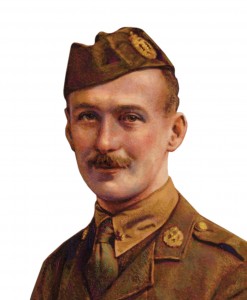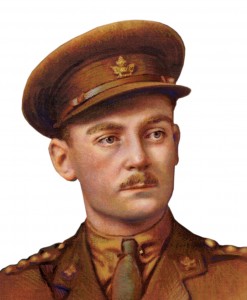On this date: February 2016
1 FEBRUARY 1944 For the first time since the First World War, a Canadian Corps operates in the front line, in Italy. 2
1 FEBRUARY 1944 For the first time since the First World War, a Canadian Corps operates in the front line, in Italy. 2

Robert Shankland Date of Deed: October 26, 1917 Location: Passchendaele, Belgium

Cecil Kinross Date of Deed: October 30, 1917 Location: Passchendaele, Belgium Portrait by Sharif Tarabay

Christopher O’Kelly Date of Deed: October 26, 1917 Location: Passchendaele, Belgium Portrait by Sharif Tarabay

Thomas Holmes Date of Deed: October 26, 1917 Location: Passchendaele, Belgium Portrait by Sharif Tarabay
A Christmas-leave story from Danny Arntsen of Delisle, Sask.: I was orderly sergeant at Debert, N.S., when the regimental sergeant major asked my advice about



Get the latest stories on military history, veterans issues and Canadian Armed Forces delivered to your inbox. PLUS receive ReaderPerks discounts!

| Cookie | Duration | Description |
|---|---|---|
| cookielawinfo-checkbox-analytics | 11 months | This cookie is set by GDPR Cookie Consent plugin. The cookie is used to store the user consent for the cookies in the category "Analytics". |
| cookielawinfo-checkbox-functional | 11 months | The cookie is set by GDPR cookie consent to record the user consent for the cookies in the category "Functional". |
| cookielawinfo-checkbox-necessary | 11 months | This cookie is set by GDPR Cookie Consent plugin. The cookies is used to store the user consent for the cookies in the category "Necessary". |
| cookielawinfo-checkbox-others | 11 months | This cookie is set by GDPR Cookie Consent plugin. The cookie is used to store the user consent for the cookies in the category "Other. |
| cookielawinfo-checkbox-performance | 11 months | This cookie is set by GDPR Cookie Consent plugin. The cookie is used to store the user consent for the cookies in the category "Performance". |
| viewed_cookie_policy | 11 months | The cookie is set by the GDPR Cookie Consent plugin and is used to store whether or not user has consented to the use of cookies. It does not store any personal data. |



Free e-book
An informative primer on Canada’s crucial role in the Normandy landing, June 6, 1944.